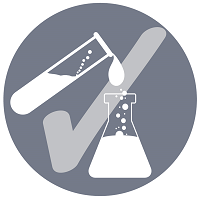Formulation and Delivery
Symposium: Patient-Centric Formulation Development: Implications on Performance and Stability
mRNA/Lipid Nanoparticle (LNP) Formulation Considerations Under Stress Stimuli
Monday, November 10, 2025
9:30 AM - 10:00 AM CT
Location: Stars at Night B2/B3
- SB
Sutapa Barua, PhD (she/her/hers)
Senior Principal Scientist
Pfizer
Andover
Speaker(s)
The advancement of mRNA-based therapeutics, particularly vaccines, represents a transformative shift in modern medicine. However, the effective formulation of mRNA encapsulated within lipid nanoparticles (LNPs) presents significant challenges, especially under stress conditions such as temperature variations, mechanical stress, and environmental factors. These stress stimuli can substantially impact the stability, efficacy, and delivery mechanisms of mRNA/LNP formulations, necessitating a comprehensive evaluation of formulation and process considerations.
This presentation will examine the critical factors involved in mRNA/LNP formulation, emphasizing the effects of stress conditions on the structural integrity of LNPs, mRNA encapsulation efficiency, and release profiles. A key focus will be the LNP manufacturing process, including lipid mixing techniques, nanoparticle size distribution, and scale-up challenges, which play a crucial role in determining the final product's stability and performance. Understanding the interplay between formulation aspects and process-induced variations is essential for developing robust, scalable mRNA/LNP systems.
Real-world examples, including case studies from recent mRNA/LNP vaccine development efforts, will be provided to demonstrate how process optimization and drug product handling contribute to the stability and efficacy of mRNA/LNP formulations.
This presentation aims to offer insights into addressing the challenges associated with mRNA/LNP formulation stability by incorporating advanced scientific techniques and process innovations, thereby ensuring the successful development and deployment of mRNA-based therapeutics.
This presentation will examine the critical factors involved in mRNA/LNP formulation, emphasizing the effects of stress conditions on the structural integrity of LNPs, mRNA encapsulation efficiency, and release profiles. A key focus will be the LNP manufacturing process, including lipid mixing techniques, nanoparticle size distribution, and scale-up challenges, which play a crucial role in determining the final product's stability and performance. Understanding the interplay between formulation aspects and process-induced variations is essential for developing robust, scalable mRNA/LNP systems.
Real-world examples, including case studies from recent mRNA/LNP vaccine development efforts, will be provided to demonstrate how process optimization and drug product handling contribute to the stability and efficacy of mRNA/LNP formulations.
This presentation aims to offer insights into addressing the challenges associated with mRNA/LNP formulation stability by incorporating advanced scientific techniques and process innovations, thereby ensuring the successful development and deployment of mRNA-based therapeutics.
Learning Objectives:
- Upon completion, participants will be able to describe the impact of stress conditions on the stability and efficacy of mRNA/LNP formulations.
- Upon completion, participants will be able to apply real-world examples and case studies to improve the stability and delivery of mRNA-based therapeutics in their own work
- Upon completion, participants will be able to apply real-world examples and case studies to improve the stability and delivery of mRNA-based therapeutics in their own work.

